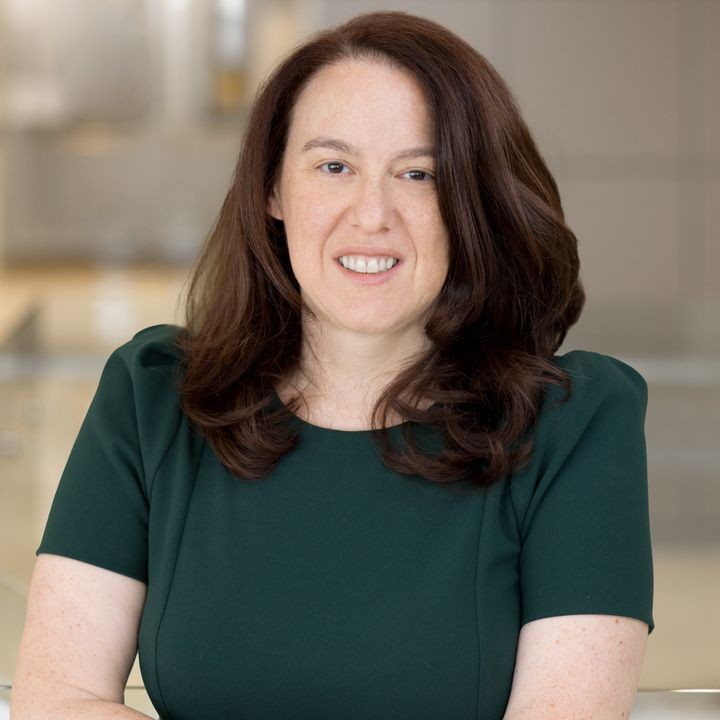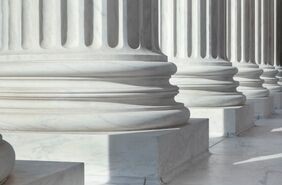Patent Owner's Self-Contradictory Expert Testimony Leads To JMOL Of No Infringement
Client Alert | 2 min read | 10.08.08
In The Johns Hopkins University et al. v. Datascope Corp. (2007-1530; October 2, 2008), Johns Hopkins sued Datascope for infringing three U.S. patents directed to methods for mechanically fragmenting blood clots. At trial, a jury found, inter alia, that Datascope infringed all of the asserted claims of the three patents. In response, Datascope filed a motion for judgment as a matter of law (JMOL) or for a new trial, which was denied by the district court. Datascope then appealed. A divided panel of the Federal Circuit holds that the jury's conclusion was not supported by substantial evidence and that Datascope's motion for JMOL should have been granted.
The methods of the Johns Hopkins patents involve a fragmentation cage or basket at the distal end of a catheter. In contrast, Datascope's ProLumen device uses an S-shaped wire to mechanically fragment blood clots. At issue was whether the Datascope device included a "fragmentation member" that "expands to conform to the shape and diameter of the inner lumen." According to the district court's jury instructions, the fragmentation member "expands and adjusts to remain in contact with the inner lumen in three dimensions along its length and width." The panel majority states that the only evidence as to whether Datascope's device literally met the claim limitations was provided by expert testimony. In particular, the Johns Hopkins expert opined that the S-wire in the ProLumen device expands and adjusts to remain in contact with the inner lumen in three dimensions upon deployment, but conceded that, prior to rotation, the S-wire only contacts the inner lumen at two points. The panel majority concludes that the testimony of the Johns Hopkins expert is contradictory and incredible, because it is impossible for the two contact points of the S-wire to meet the three dimensions aspect of the "expands to conform" limitation, and thus that testimony is incapable of providing substantial evidence to support the jury verdict. Accordingly, the panel majority concludes that no reasonable jury could have found that Datascope's device infringed based on the expert's opinion.
In a separate opinion, Judge Newman dissented, arguing that panel majority was inappropriately retrying the facts, which had been decided by the jury and sustained by the district court. Judge Newman argues that in reviewing a jury verdict, the appellate court must draw all reasonable inferences in favor of the verdict, without making credibility determinations and without reweighing the evidence.
Contacts
Insights
Client Alert | 4 min read | 07.02.25
On June 27, 2025, the Supreme Court upheld the constitutionality of the USPSTF and its role in identifying preventive services for coverage under the ACA in Kennedy v. Braidwood Management.[1]In the case, the Supreme Court considered whether the Secretary of HHS’s appointment of USPSTF members without the advice and consent of the Senate complied with the Appointments Clause in Article II of the United States Constitution. The Supreme Court found that USPSTF members were “inferior Officers” under the Appointments Clause who did not require Senate confirmation because the Secretary of HHS had the authority to remove USPSTF members at will and “to directly review and block Task Force recommendations before they take effect.” The Supreme Court therefore affirmed that the USPSTF as currently structured may legally recommend preventive services for coverage without cost-sharing requirements under the ACA.
Client Alert | 3 min read | 07.02.25
USPTO's Upcoming Changes to the Accelerated Examination Program
Client Alert | 2 min read | 07.01.25
DoD Establishes New DOGE Approval Process for ITC&MS and A&AS Contracts
Client Alert | 10 min read | 07.01.25
Ninth Circuit Decision Underscores Increasing False Claims Act Risks to U.S. Importers




